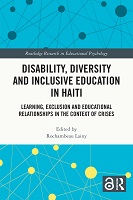Chapter 1 The challenges of expansion and democratization of education
Proposal review
A historical look at school exclusion in Haiti
Abstract
The history of public education in Haiti has been characterized by an idealistic notion of extending the enlightenment of education throughout the country. This notion is reflected in the establishment of an important legal arsenal which, since the 19th century, has defined three main principles of the Haitian school system. These three principles have been a constant throughout the history of the country. They were intended to promote the expansion and democratization of schools in Haiti. Overshadowed by academic liberalism, the principles of free and compulsory education remain, however, merely an illusion for the majority of the country's children. Despite pompous speeches from its political leaders, Haiti has failed to catch up with the expansion and democratization of schools. Its educational system faces many challenges, including the problem of access to school, the lack of physical infrastructure and the shortage of qualified teaching staff. These challenges have extended the exclusion and inequality which stem from the contempt of the Haitian elites for the education of the people, in particular those in the countryside, and in an economic model based on food, not industry.
Keywords
Context, Crises, Disability, Diversity, Education, Educational, Exclusion, Haiti, Inclusive, Lainy, Rochambeau, Learning, RelationshipsDOI
10.4324/b23239-3ISBN
9781032389462, 9781032389479, 9781003347644Publisher
Taylor & FrancisPublisher website
https://taylorandfrancis.com/Publication date and place
2023Imprint
RoutledgeClassification
Education
Educational psychology
Educational strategies and policy: inclusion


 Download
Download